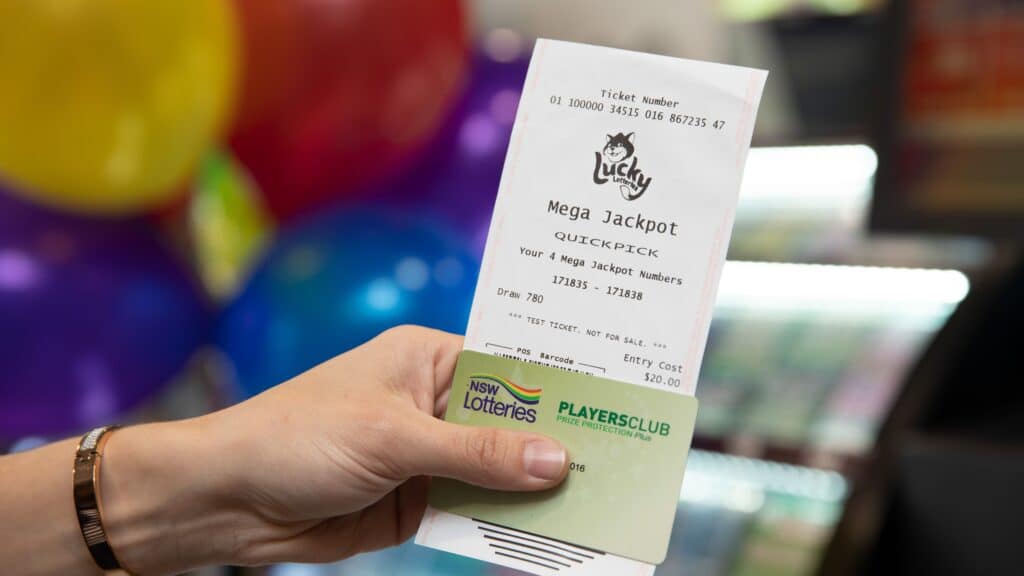Lotteries have captivated the imagination of people for centuries, offering a chance to win life-changing prizes for a small investment. From ancient cultures to modern-day jackpots, lotteries have evolved into one of the most popular forms of gambling worldwide. Whether you're a casual player or a dedicated enthusiast, understanding the history, rules, and strategies behind lotteries can enhance your experience. In this comprehensive guide, we will dive into the history of lotteries, explain the rules, share fun facts, and provide insights for both new and experienced lottery players.
The History of Lotteries
Lotteries date back thousands of years and have played a significant role in societies around the world. Here is a look at some key moments in the history of lotteries:
Ancient Origins: The Birth of Lotteries
The concept of lotteries can be traced back to ancient civilizations, where the practice of drawing lots was used for various purposes, including dividing land, resources, or even slaves. In ancient China, lotteries were used to fund large projects like the construction of the Great Wall of China. Known as the "Keno," the Chinese lottery system was first recorded during the Han Dynasty (around 205-187 BC), and it was believed that the proceeds from the lottery helped fund government operations and military efforts.
Similarly, the ancient Greeks and Romans held lotteries to determine winners of prizes, and these were often linked to festivals and public celebrations. The Roman Emperor Augustus even organized a public lottery to raise funds for repairs to the city of Rome, and the prize was typically items like slaves, property, or gold. The first documented use of the word "lottery" (from the Dutch word “loterij,” meaning "to draw lots") occurred in the 15th century in Europe, when various towns began organizing public lotteries to raise money for various community needs.
European Lotteries: From Royalty to Public Good
The popularity of lotteries spread to Europe in the 16th century, where they became a means for kings and nobles to fund public projects. One of the earliest recorded European lotteries took place in the Netherlands in 1434, and by the 16th century, the lottery became an essential part of financing projects in cities like Florence, Venice, and Paris. In fact, Queen Elizabeth I of England organized the first national lottery in 1569, with the proceeds going toward the building of ships for England’s navy.
During the 17th century, lotteries continued to flourish across Europe, with some governments and monarchs using them as a way to generate revenue for military ventures and infrastructure projects. By the 18th century, lotteries had become more commonly associated with charity and public welfare, which led to their widespread use across the continent.
The Birth of Modern Lotteries in the United States
In the United States, the concept of lotteries was introduced during colonial times. The first American lottery was held in 1612 to raise money for the Virginia Company, which funded the establishment of the Jamestown colony in Virginia. The lottery was used to support early colonists and provide for their needs, such as food, shelter, and weapons.
Throughout the 18th and 19th centuries, lotteries were used to fund public services, schools, infrastructure, and military efforts in the U.S. In fact, some of the country's oldest universities, including Harvard, Yale, and Princeton, were funded in part by lottery proceeds. However, as the country expanded and grew, public perception of lotteries began to change. By the mid-19th century, lotteries were often associated with corruption, fraud, and moral decline, leading many states to ban them entirely.
The Revival of Lotteries in the Modern Era
The modern lottery system in the U.S. was revived in the 1960s, with the introduction of state-run lotteries. The first state to reintroduce the lottery was New Hampshire, which launched its first lottery in 1964. By the 1980s, most states had followed suit, and state lotteries became a regular source of funding for education, infrastructure, and various public services.
Today, lotteries are popular not only in the United States but across the globe, with numerous international and regional lotteries offering massive jackpots and life-changing prizes. The lottery industry continues to evolve with technological advancements, such as online lottery sales and mobile apps, making it easier than ever to participate in lotteries from anywhere in the world.
The Rules of Lotteries
Understanding the basic rules of lotteries is crucial before you play. While the specifics can vary depending on the lottery you're participating in, most lotteries follow a similar format. Here’s a breakdown of how lotteries generally work:
Basic Structure
In most lotteries, participants purchase a ticket that contains a series of numbers or symbols. Depending on the lottery, these numbers may be randomly chosen by the player or generated by a computer system. The goal of the game is to match a specific set of numbers, which are drawn at random at a later time. If your ticket’s numbers match the drawn numbers, you win a prize.
Lotteries typically offer a range of prizes, from smaller amounts for matching a few numbers to the grand jackpot for matching all of the numbers. The more numbers you match, the bigger the prize. Some lotteries also feature additional prize categories, such as bonus numbers, which can increase your winnings.
Types of Lotteries
There are several different types of lotteries, each with its own rules and formats. Some of the most popular lottery types include:
- Traditional Draw Games: Players select a set of numbers, and a random draw determines the winners. Examples include Powerball, Mega Millions, and EuroMillions.
- Instant Win or Scratch-Off Tickets: These are tickets that allow players to scratch off a coating to reveal instant prizes. The odds of winning are generally smaller but provide immediate gratification.
- Raffles: Players purchase tickets for a chance to win a specific prize, usually based on a random drawing.
- Multistate Lotteries: Some lotteries, like Powerball, are operated across multiple states or countries, which leads to larger jackpots and more participants.
How to Play: Step-by-Step Guide
Here’s a simple step-by-step guide to help you understand how to play most traditional lottery games:
- Purchase a Ticket: The first step is to purchase a ticket from an authorized retailer or online platform. For most lotteries, you can choose your own numbers or opt for a “quick pick,” where the numbers are randomly selected for you.
- Choose Your Numbers: Depending on the lottery, you will select a set of numbers from a predetermined range (e.g., 1-50). In some lotteries, additional numbers or special symbols may be drawn to increase your chances of winning.
- Wait for the Draw: Once you’ve purchased your ticket, you must wait for the official draw to take place. Drawings are typically scheduled at regular intervals (e.g., once or twice a week).
- Check Your Numbers: After the drawing, compare the numbers on your ticket with those that were drawn. If your numbers match, you win a prize. The prize amounts depend on how many numbers you matched and the specific lottery rules.
- Claim Your Prize: If you win, congratulations! Depending on the size of the prize, you may need to claim it in person or receive it via a check or bank transfer.
Fun Facts About Lotteries
Lotteries have an incredibly rich history, and there are plenty of fun facts that make them even more interesting:
- The Largest Jackpot: The largest lottery jackpot ever won was a staggering $1.586 billion, split between three winners in the 2016 Powerball draw.
- Lottery Winners Are Diverse: Lottery winners come from all walks of life. In fact, research shows that lottery winners tend to be just as likely to have won the prize by accident as by strategy.
- Instant Win Tickets are the Most Popular: Scratch-off tickets are the most popular lottery game in many countries, with players enjoying the instant gratification of knowing whether they’ve won.
- First Lottery Ticket Cost: The first lottery tickets ever sold in the U.S. cost only $1, and the winnings were much smaller than the multi-million dollar prizes we see today.
- Unclaimed Winnings: Many lottery prizes go unclaimed each year. In some cases, winners fail to come forward before the deadline, resulting in millions of dollars in unclaimed winnings.
Strategies for Playing Lotteries
While lottery games are largely based on chance, there are a few strategies that can help you maximize your odds of winning:
- Play Consistently: The more tickets you buy, the better your odds of winning. However, keep in mind that the odds are still relatively low, so it’s important to play responsibly.
- Join a Lottery Pool: Pooling your money with others increases your chances of winning without increasing your individual investment. Many groups play together and split the winnings.
- Choose Less Popular Numbers: While the odds of winning are the same regardless of the numbers you choose, picking less popular numbers can increase your payout if you win, as you’ll have fewer people to share the prize with.
Conclusion: The Allure of Lotteries
Lotteries have remained a beloved form of entertainment and a potential source of financial freedom for millions of people worldwide. From their ancient origins to their modern-day digital presence, lotteries continue to captivate the imagination and offer excitement to players from all walks of life. Whether you’re playing for fun or dreaming of the grand jackpot, understanding the history, rules, and strategies behind lotteries can help you make the most of your experience.



